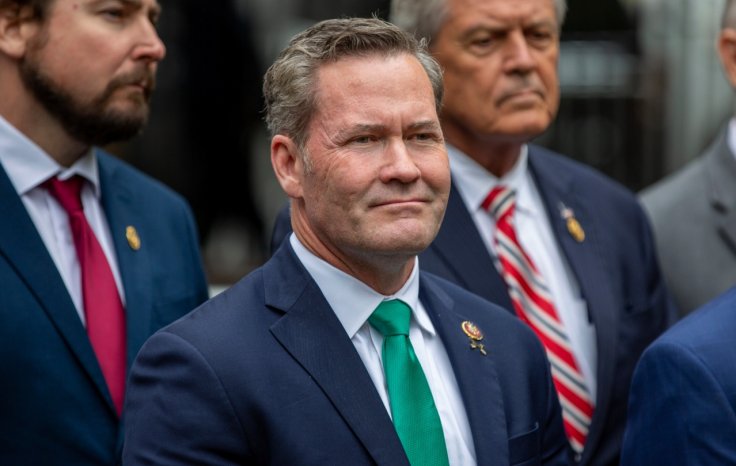The root cause of the Signalgate controversy that shook the Trump administration and placed NSA Mike Waltz under intense scrutiny has finally come to light. A digital error involving Waltz has drawn scrutiny after it led to the accidental inclusion of a journalist in a secure Signal group chat discussing U.S. military actions in Yemen. According to a report by The Guardian, Waltz mistakenly added Jeffrey Goldberg, editor-in-chief of The Atlantic, to a chat titled "Houthi PC small group," which contained high-level discussions about planned strikes on Houthi rebel targets.

The incident traces back to October of the previous year, when Goldberg contacted then-campaign spokesperson Brian Hughes for comments related to a story about Trump. Goldberg's email was forwarded to Mike Waltz via text message. That message included Goldberg's phone number. Due to Apple's iPhone contact suggestion algorithm, the number was automatically saved under Hughes' name on Waltz's phone. Months later, when Waltz created the Signal group chat, he attempted to add Hughes but unknowingly selected the contact that actually belonged to Goldberg.
This mistake went unnoticed until March, when the group chat was formed. By then, Goldberg had received multiple messages related to sensitive military discussions. The White House launched an internal investigation to determine how the breach occurred and whether classified material had been exposed. Officials later confirmed that the information shared in the chat was not classified, though it involved discussions of high importance. The situation alarmed national security observers and raised concerns about the administration's digital communication practices.
According to a report from The Guardian, the iPhone feature that caused the mix-up is a common issue where the phone attempts to automatically link unknown numbers to existing contacts if a relationship is inferred from message history. In this case, the algorithm linked Goldberg's number to Hughes' name because of the forwarded email chain.
The Trump administration initially considered removing Waltz from his role. According to insider reports, Trump was particularly disturbed by the fact that Waltz had Goldberg's number saved on his phone, given past tensions between the administration and The Atlantic. However, Trump eventually reversed course and decided to retain Waltz. In a statement made during an NBC News interview with Kristen Welker, Trump said, "I don't fire people because of fake news and because of witch hunts," and added that he continued to trust Waltz and Pentagon chief Pete Hegseth.
White House Press Secretary Karoline Leavitt addressed the controversy at a briefing in late March. She confirmed that the administration had taken corrective measures to ensure that such incidents do not recur. "As the president has made it very clear, Mike Waltz continues to be an important part of his national security team and this case has been closed here at the White House as far as we are concerned," Leavitt said.
Jeffrey Goldberg, who was inadvertently added to the chat, later published an article that revealed the group's existence and the nature of the messages he had received. While Goldberg did not engage in the chat, his report shocked both the media and national security circles. The leak brought attention to the risks of using publicly available encrypted messaging platforms like Signal for sensitive government communications.
Goldberg later commented on the situation with sarcasm, criticizing Waltz's explanation and describing the excuse as absurd. The incident triggered widespread debate about cybersecurity and the need for more secure, government-monitored communication systems. The Signal chat mistake, while reportedly not exposing classified intelligence, has become a flashpoint in the conversation about digital vulnerabilities within high offices.
The White House has declined to release full transcripts from the group chat but maintains that no critical information was compromised. Lawmakers and watchdog groups have since called for greater oversight and updated digital security protocols for executive communications, especially when involving national security discussions.









